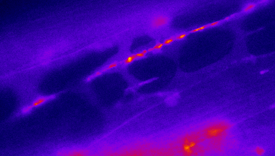
Hiroaki Kiyokawa, M.D., Ph.D.
Professor of Pharmacology, Feinberg School of Medicine, Northwestern University
SFARI Investigator WebsiteHiroaki Kiyokawa is professor of pharmacology at the Feinberg School of Medicine, Northwestern University. He is a molecular biologist who has been studying posttranslational modifications, including phosphorylation and ubiquitination, over three decades.
After receiving his M.D. and Ph.D. at Osaka University Medical School, Japan, he moved to the United States where he conducted postdoctoral research at Memorial Sloan-Kettering Cancer Center. In 1995, he generated novel p27Kip1-deficient mice by gene targeting and revealed a number of biological functions of this CDK inhibitor in cellular differentiation and animal development. In 1997, Kiyokawa initiated his own laboratory in the Department of Molecular Genetics at University of Illinois at Chicago, and in 2005 he was recruited to Northwestern University, followed by promotion to full professor in 2008.
As a basic scientist with clinical experience as a physician, his long-term goal is to apply basic research to the therapeutics against human diseases. With broad expertise in mouse genetics, cell biology and biochemistry, Kiyokawa and his colleagues have been investigating various roles of ubiquitination enzymes in human diseases, including cancer and neurological disorders.
Recently, in collaboration with Jun Yin at Georgia State University, his team developed a novel ubiquitination substrate profiling method, orthogonal ubiquitin transfer (OUT), and applied it to profiling ubiquitination substrates of E3 ligases (e.g., UBE3A/E6AP, CHIP and E4B) and both of the known E1 ligases (UBA1 and UBA6).
Kiyokawa’s research has been supported by numerous federal funding agencies (including the National Institute of General Medical Sciences, the National Cancer Institute, the Eunice Kennedy Shriver National Institute of Child Health and Human Development and the Department of Defense) and foundations (SFARI and the American Cancer Society).
